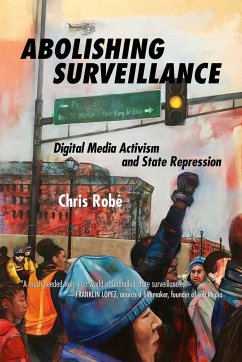The Department of Justice sought information on all who visited the DisruptJ20.org website for Donald Trump's inauguration. Undercover agents infiltrate BlackLivesMatter protests. Police routinely command bystanders to stop filming them by falsely claiming it is a crime. Agricultural states such as Iowa, Idaho, Utah, and Wyoming enact laws that criminalize the filming of factory farm cruelty while allowing other-than-human animal suffering to continue unabated. Dissent and poverty are increasingly criminalized by the state as precarity grows. Abolishing Surveillance offers the first in-depth study of how various communities and activist organizations are resisting such efforts by integrating digital media activism into their actions against state surveillance and repression and for a better world. The book focuses on a wide array of movements within the United States such as Latinx copwatching groups in New York City, Muslim and Arab American communities in Minneapolis, undercover animal rights activists, and countersummit protesters to explore the ways in which government surveillance and repression impacts them and, more importantly, their different but related online and offline tactics and strategies employed for self-determination and liberation. Digital media production becomes a core element in such organizing as cell phones and other forms of handheld technology become more ubiquitous. Yet such uses of technology can only be successfully employed when built upon strong grassroots organizing that has always been essential for social movements to take root. Neither idealizing nor disparaging the digital media activism explored within its pages, Abolishing Surveillance analyzes the successes and failures that accompany each case study. The book explores the historically shifting terrain since the 1980s to the present of how historically disenfranchised communities, activist organizations, and repressive state institutions battle over the uses of digital technology and media-making practices as civil liberties, community autonomy, and the very lives of people and other-than-human animals hang in the balance.
Hinweis: Dieser Artikel kann nur an eine deutsche Lieferadresse ausgeliefert werden.
Hinweis: Dieser Artikel kann nur an eine deutsche Lieferadresse ausgeliefert werden.








